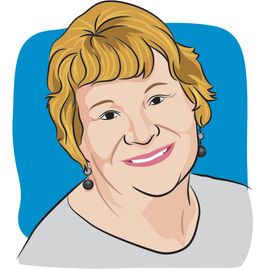- About Us
- Advertise / Support
- Editorial Board
- Contact Us
- CancerNetwork.com
- TargetedOnc.com
- OncLive.com
- OncNursingNews.com
- Terms & Conditions
- Privacy
- Do Not Sell My Information
- Washington My Health My Data
© 2025 MJH Life Sciences™ and CURE - Oncology & Cancer News for Patients & Caregivers. All rights reserved.
Why Are We So Stressed? Fear Can Be Debilitating for Cancer Survivors

Jane Biehl is a 12-year survivor of a very rare form of blood cancer, known as myelodysplastic syndrome (MDS). She has enjoyed several exciting careers including a librarian, counselor, teacher, and writer. She loves to write about surviving cancer, overcoming hearing loss and the wonderful benefits of having a hearing-ear service dog.
A cancer survivor explains why she thinks so many people – especially cancer survivors – are so stressed right now and encourages them to share their emotions with others.
I have been feeling very stressed and depressed lately. More than that I feel discombobulated, disoriented, unable to focus, restless, forgetful and distracted.I suffer from insomnia, lying in bed with my mind racing. I find myself watching hours of mindless television when I should be doing other things. I even have trouble concentrating when I read, which has always been a great escape for me.
I am not on chemo presently but feel like I did when I was battling the chemo fog along with other symptoms like constant fatigue. I became so worried about my state of mind I began to finally open up and talk to my closest friends about it. Many years ago, I had severe depression before I sought counseling and was fearful that it was returning.
One of my friends is a counselor also and she said she was feeling the same way.She asked me if I thought it was COVID-19.
In a flash I remembered my Psychology 101 courses. We were taught that in order for humans and animals to survive, we either freeze so a predator cannot see us, flee away from danger or fight an enemy in front of us. We do this to save our lives.
Then I remembered some research I did on the bodily responses to this fear. It takes 30 seconds for our heart to begin racing, perspiration to drip and our breathing to accelerate. An example would be if we step off a curb and are almost hit by a car. We may have avoided a terrible accident by jumping back, but our reflexes that saved us are still running strong. It takes 30 minutes to deescalate.
COVID-19 is more insidious. We do not realize that we are in a constant underlying state of fear and panic, which is stressing both our bodies and our minds. We live in constant fear – fear of getting COVID-19, fear of being cooped up and afraid of lockdowns again. We experience fear of people confronting us if we are or are not wearing masks. We are afraid to plan for holidays that may not materialize. Some of us are certain we may lose our jobs again. Parents constantly worry that our children will not be able to attend school in person. We even experience this concern on a simple errand to the grocery store to pick up a few items.
Along with this, we daily face tough decisions about whether to go out, to meet with friends or to attend an event. This is all invisible fear, unlike a car that almost hit us, but it is every bit as real and never stops. It is tasking us, draining us and exhausting us. It is taking a toll on all of us both mentally and physically with no end in sight.
With us cancer survivors, there is additional fear of going to the hospital, lab or doctor for treatments, fear of what the next scan or blood test will show and fear that if we get COVID-19, we may not survive.
So if I want to watch mindless television where there is an end to a problem or a happy Hallmark movie I should not berate myself. Using television for an escape is my method of surviving. We each have somehow found an escape and may not even know it. As one of my friends reminded me, I am not alone. In fact, if I mention this constant restlessness to anyone, they will tell me they are feeling the same way.
I am only sorry I did not open up and talk to people sooner. Just the knowledge I am not the only one has been a huge help. We all need to know that we are not alone and reach out to others. We cannot keep beating ourselves up. We can find activities we enjoy whether it is puzzles, watching television or reading. These escapes are our forms of survival. And most importantly, we must not be afraid to tell others about our fears so we know we are not alone.
For more news on cancer updates, research and education, don’t forget to subscribe to CURE®’s newsletters here.
Related Content:



